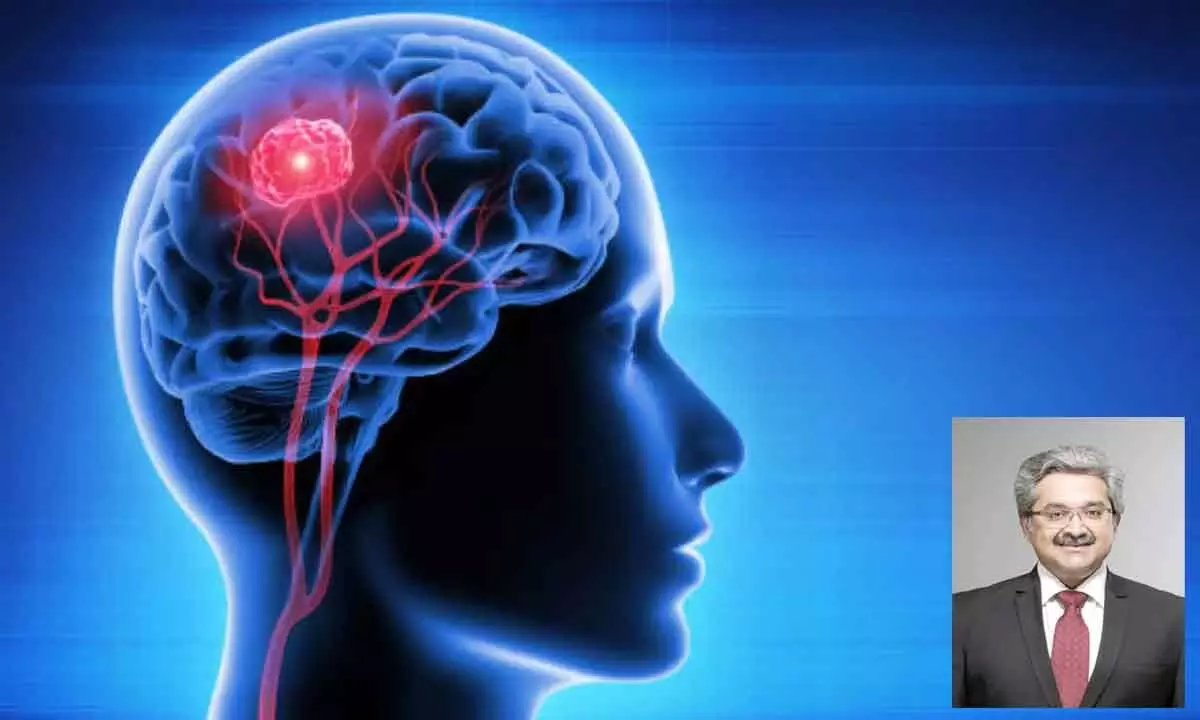Brain tumour can impair quality of life of patient, says neuro surgeon

Brain tumour occurs when certain genes in the chromosomes of a cell are impaired and do not function properly anymore.
Bengaluru: Brain tumour occurs when certain genes in the chromosomes of a cell are impaired and do not function properly anymore. These genes typically control the degree to which the cell divides and repairs genes that fix deficiencies of other genes, as well as genes that should cause the cell to self-destruct if the damage is beyond repair. Sometimes, a person could be born with partial defects in one or more of these genes. Environmental factors may then lead to further mutilation. However, in few other cases, the environmental injury to the genes can be seen as the only factor.
Generically speaking, brain tumour and its treatment can cause changes in a person's behaviour and ability to think. Patients may experience difficulties with their communication, concentration, memory, and their personality may change. Brain tumours often cause personality changes and sudden mood swings.
Although these mood changes and their severity will vary from person to person, it's relatively common for someone with a brain tumour to experience increased aggression and agitation. Also weakness, dizzy spells, poor balance or lack of coordination, personality or behaviour changes, confusion, problems with speech and fits (seizures) are some probable effects of suffering from brain tumour. However, it is imperative to note that the outcome of the brain tumor on the quality of life depends on whether the tumour in its basic nature is benign or malignant.
Speaking to The Hans India, Dr Ravi Gopal Varma, Lead Consultant Neurosurgery and Program Director – Global Centre of Excellence in Neurosciences, Aster Hospitals, Bengaluru, said, "In the case of benign tumours, there is not much variation in the quality of life of the patient. There could be neurological deficits which can be overcome through regular physiotherapy and rehabilitation.
Through serial imaging, we can keep a close eye on the recurring of the tumours. In case of relapse, the patient can undergo radiation or surgery. To answer an underlying question, benign tumour doesn't impair the quality of life post contraction of the ailment. Most of the tumours do not leave residual deficits and hence it's easy to bounce back to normalcy with timely rehabilitation and psychotherapy."
"However, in the case of malignant brain tumour, the outcome depends on the grade of the malignancy itself. If the nature of the tumour is Grade1, the characteristic features accompanying the tumour act more or less like that of benign tumour. However, Grade 4 tumour requires chemotherapy and radiation which results in skin discoloration, hair fall, fatigue and other physiological changes.
As a result, there is depletion in the quality of life. Nonetheless, these changes are totally reversible with the right treatment and time." Dr Ravi Gopal Varma said. Stressing on the need to maintain a positive outlook, Dr Ravi Gopal Varma said, "One thing to bear in mind irrespective of the nature of the tumour is maintaining a positive approach towards the ailment itself.
A strong mind-set immensely helps the patient come out of the trauma of suffering from a cancerous brain tumour. A holistic, positive well-being goes a long way in rehabilitating a post-ailment patient. Needless to say, family support and strength go a long way for the patient in leading a fruitful and blissful life."














